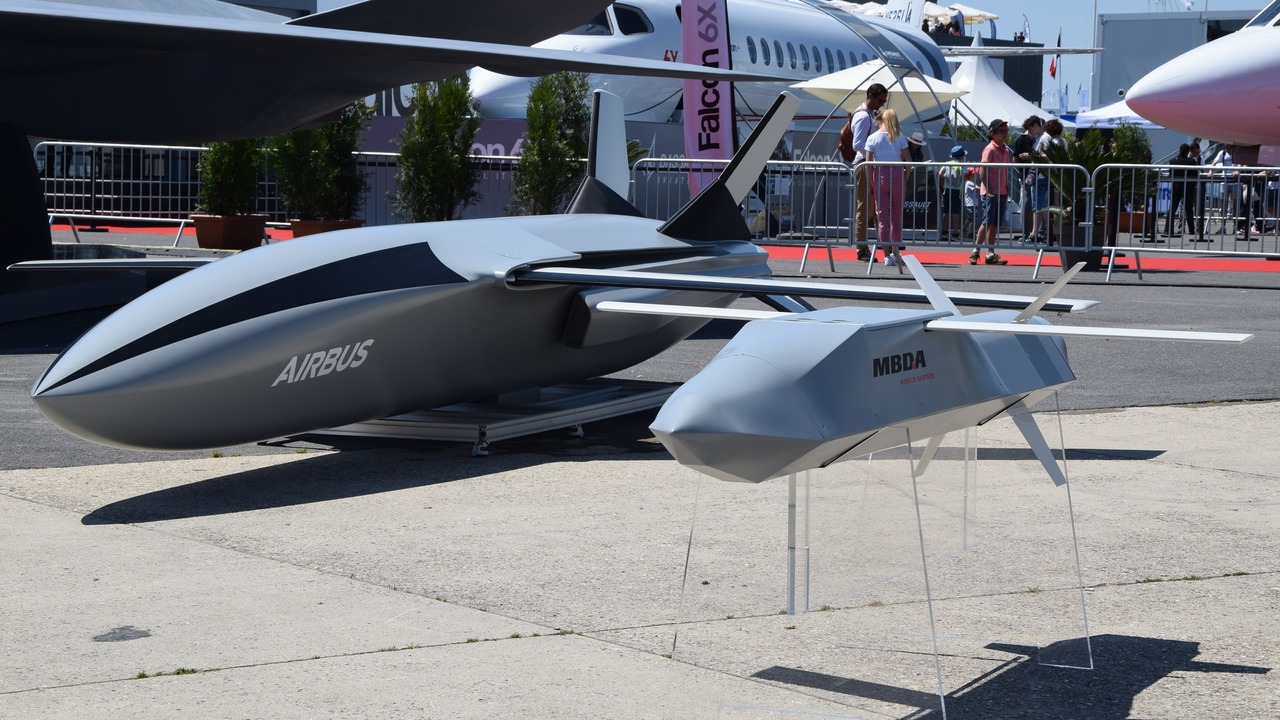
Does the Future Combat Air System Have a Future Without France?
Despite involving two of Europe’s largest aviation firms and a leading information technology company, the program has been plagued with internal troubles.
The French-based Dassault Aviation may be bailing out of the Future Combat Air System (FCAS) program, which has been seeking to develop a sixth-generation fighter. The multinational program’s other partners include Germany’s Airbus and Spain’s Indra.
The goal of the effort has been to field a replacement for France’s Rafales, Germany’s Typhoons, and Spain’s American-made EF-18 Hornets.
Much like the American Next Generation Air Dominance (NGAD), FCAS called for a system with a manned Next Generation Fighter (NGF) at the center. It has also sought to develop adjunct aircraft, which could be analogous to the U.S. Air Force’s Collaborative Combat Aircraft (CCA), that could support the manned F-47 sixth-gen fighter and serve as “loyal wingmen.”
FCAS has further sought to develop an “Air Combat Cloud,” which could serve as a multi-domain capable, data-rich network, allowing cross-platform information sharing.
Turbulence in the Future Combat Air System
Despite involving two of Europe’s largest aviation firms and a leading information technology company, or perhaps because of it, the program has been plagued with internal turbulence.
Dassault Aviation CEO Eric Trappier recently complained to the French parliament: “It’s not that Dassault Aviation doesn’t want to be involved. But it’s very difficult. We cannot divide up the work according to what we think. We have to compromise and negotiate constantly,” Trappier warned.
“Now we will have to negotiate Phase 2, and so on. It’s complex and time-consuming. But if the States are willing, we can adapt. Though I’m not sure, it’s an efficient model.”
Past issues have involved disagreements over intellectual property sharing between the companies, how work would be divided, and the jet’s specifications. As a result, the program has been stuck in Phase 1B since December 2022, which calls for developing the concept while key technologies are identified.
As reported in December 2023, the three primary partner nations had pledged 3.2 billion euros for Phase 1B, which was set to run for three and a half years, with an option for a further five billion euros for Phase 2. The former phase was expected to be complete by the middle of 2026, but based on the Dassault chief’s comments, the deadline may not be met.
Only after that is completed will Phase 2 begin, which calls for the delivery of the prototype.
Airbus and Dassault had frequently been at odds, and it has been previously suggested that some of the blame lies with Dassault, as the French company had refused to budge over the IP rights. Others argued that Airbus was pushing for a more significant share of the Dassault-led project, insisting it should be given “equal footing” with the French company.
Matters could worsen, as Belgium has sought to join the program as a junior member, meaning more partners will need to be heard.
Tappier may be reminded of Emperor Napoleon’s infamous quote, “Give me allies to fight against.” France is one of those allies in this case, and the fight is internal.
Unless the issues can be resolved, there may be no future for the Future Combat Air System.
Franco-German Partnership Works, Just Not for the Future Combat Air System
The executives at Dassault and Airbus may need to look to the Franco-German-led Main Ground Combat System (MGCS). This program oversees the development of another system. It is now developing the eventual replacement for the Leopard 2 and Leclerc main battle tanks (MBTs) by 2040.
In January of this year, KNDS Deutschland, KNDS France, Rheinmetall Landsysteme, and Thales signed a shareholder agreement to develop the MGCS. Like the Russian Armata project, it has called for more than just a single MBT, the T-14. Germany and France are seeking to share the costs and could soon have a third partner, as Belgium has also expressed interest in joining the effort.
Belgium could be the glue that binds Berlin and Paris in the MGCS and FCAS programs instead of being a wedge that drives them apart.
About the Author: Peter Suciu
Peter Suciu is a Michigan-based writer. He has contributed to more than four dozen magazines, newspapers, and websites with over 3,200 published pieces over a twenty-year career in journalism. He regularly writes about military hardware, firearms history, cybersecurity, politics, and international affairs. Peter is also a Contributing Writer for Forbes and Clearance Jobs. You can follow him on Twitter: @PeterSuciu. You can email the author [email protected].
Image: Shutterstock/ Tiraden.